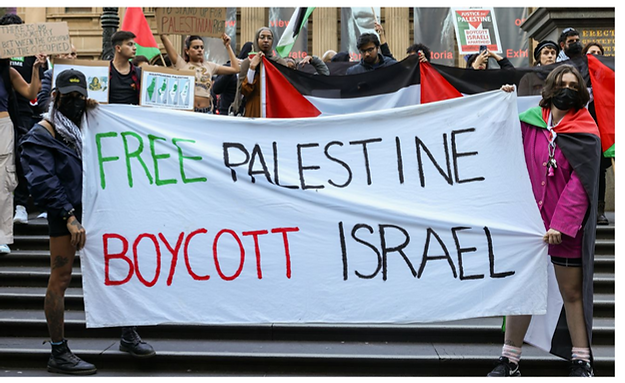What is Gahr's Theater Class Up to?
Brenna Frick | February 17, 2021
What is Gahr's Theater Class Up to?
Brenna Frick | February 17, 2021
What is Gahr's Theater Class Up to?
Brenna Frick | February 17, 2021
What is Gahr's Theater Class Up to?
Brenna Frick | February 17, 2021
-
February 17,2021
-
January 21, 2021
-
January 21, 2021
THE
GAHR HIGH SCHOOL'S STUDENT NEWS WEBSITE
Throughout history, boycotts have been the most direct and simplest form of protest people can participate in. Not only is it incredibly accessible to the public, it hits companies right where it hurts: the wallet.
Amidst the conflict between Palestinians and Israel, as well as overworked employees begging to be treated as humans - boycotts were the first response. During the writers/actors/animators strike, there was a call for a boycott against Netflix and other streaming services, in comparison Pro-Palestinian activists called for boycotts against Starbucks, McDonald’s, and Coca-Cola. But people began to ask if boycotts are truly as effective as they were years ago, after all, unlike companies back then - companies are multifaceted conglomerates.
And in many cases, it unfortunately isn’t. Maurice Schweitzer, a researcher of behavior in ethics, told BBC News, “...the slice of consumers who choose to boycott – and sustain doing so – usually isn't big enough to move the dial long-term.” This is reflected in cases such as Hogwarts Legacy, a game based off of J.K. Rowling's book series Harry Potter, where many people called for a boycott - despite this, it made millions of dollars in revenue. Understandably, this is very disheartening. But for every unsuccessful boycott, there is a successful one.
The call to protest Starbucks appears to be the most effective out of them all. After the Starbucks Workers United organization posted their support of Palestine online, Starbucks demanded that the Union workers stop using Starbucks in their name (despite being a union in their name). This caused outrage, calling for the aforementioned boycott, many stressing boycotting on the most important and lucrative day for Starbucks, Red Cup Day. Since November 16th, 2023, Starbucks has lost 11 billion dollars in stock value.
Even if the effect of the boycott is minimal to the pocketbook of a company, is it worth giving up the best part of your day for a cause?

